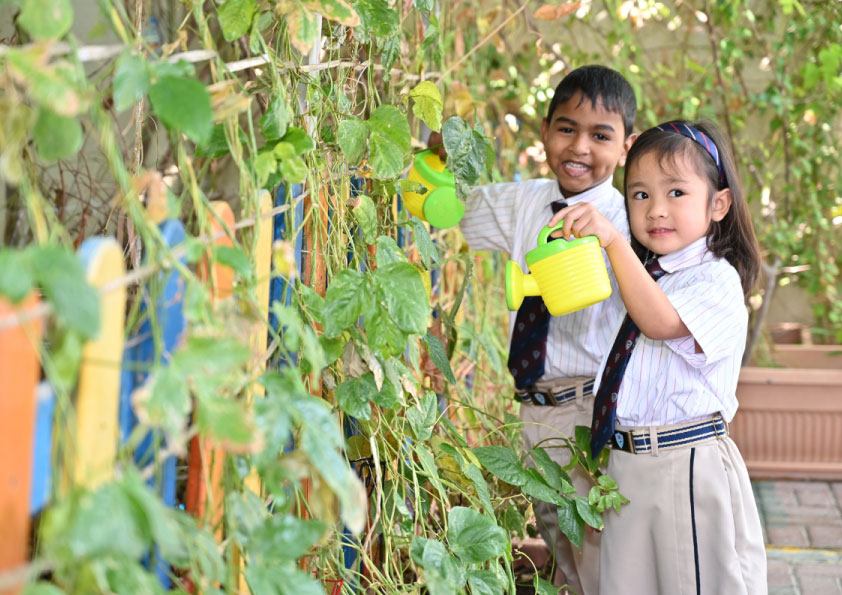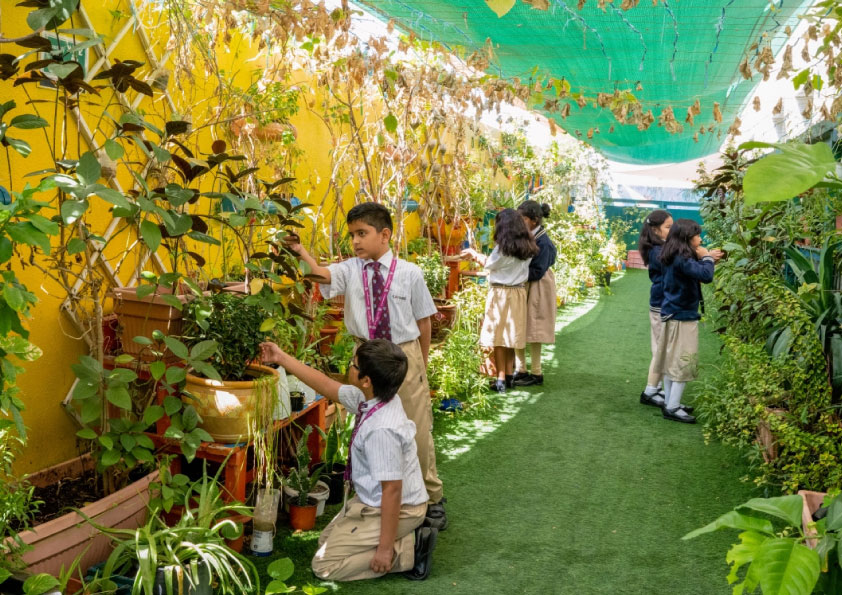Outside Learning Area
We in the Foundation Stage believe that it is essential that young children get frequent and regular opportunities to explore and learn in the outdoor environment and this should not be seen as an optional extra is essential for the young students. The Early Years Foundation Stage (EYFS) Curriculum, strongly emphasis on the importance and value of daily outdoor experiences for students’ learning and development
We see outdoor play as the most important aspect of our students’ development for the following reasons:
- many students prefer playing outside and as a result they show greater levels of involvement and motivation when learning new skills and concepts across the whole curriculum.
- Young students learn by being physically active and the outside environment allows greater space.
Following are some of the opportunities students of the Foundation Stage get in beyond their immediate indoor environment: –
- Learning outside the classroom supports the development of healthy and active lifestyles by offering students opportunities for physical activity, freedom and movement, and promoting a sense of well-being.
- Playing and learning outside helps students to understand and respect nature, the environment and the interdependence of humans, animals, plants, and lifecycles.
- Outdoor play also supports students’ problem-solving skills and nurtures their creativity, as well as providing rich opportunities for their developing imagination, inventiveness and resourcefulness.
- The outdoor environment offers space and therefore is particularly important to those students who learn best through active movement. Very young students learn predominately through their sensory and physical experiences which supports brain development and the creation of neural networks.
- The outdoor environment offers space and therefore is particularly important to those students who learn best through active movement. Very young students learn predominately through their sensory and physical experiences which supports brain development and the creation of neural networks.
- Students, playing outdoors get the opportunity to play safely and freely while they learn to assess risk and develop the skills to manage new situations.
- Learning that flows seamlessly between indoors and outdoors makes the most efficient use of resources and builds on interests and enthusiasms
- Students will learn to respect the outside environment from a young age.
Learning opportunities in the Outside Side Learning Area.
- Water Play
- Sand Play
- Jungle Gym
- Motor Skill Development Area
- Music Discovery Area
- School Garden




